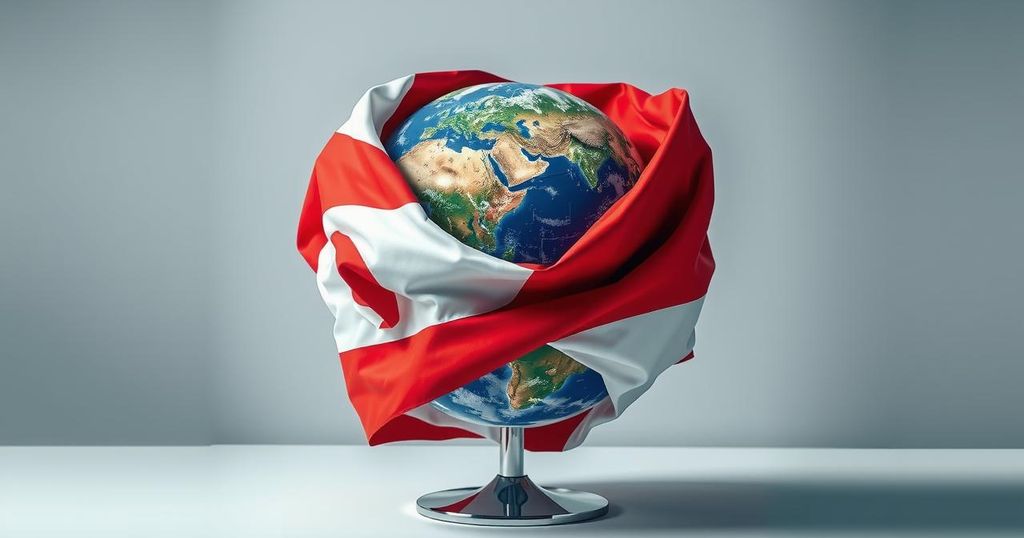In a recent analysis, Paul Webster Hare discusses the evolving dynamics between the Trump administration and Venezuelan President Nicolás Maduro. He notes a pragmatic shift where U.S. policy remains consistent in opposing Maduro but engages in negotiations to address mutual interests, especially amid Venezuela’s electoral fraud and economic difficulties. Internal administration conflicts and China’s growing influence further complicate the geopolitical landscape.
Paul Webster Hare, a Master Lecturer in International Relations at the Frederick S. Pardee School of Global Studies and a former diplomat with substantial experience in Venezuela, offers an insightful analysis of the evolving relationship between the Trump administration and Venezuelan President Nicolás Maduro. In his article published by The Conversation, Hare discusses what he terms as “a subtle shift” in U.S. policy toward Venezuela during President Trump’s second term.
Hare observes that the Trump administration has maintained its refusal to officially recognize Maduro while favoring a preference for his removal. The administration has preserved sanctions against Venezuela and continues to acknowledge Edmundo González as the legitimate president-elect, indicating a consistency in its diplomatic stance despite changing conditions.
The analysis indicates that pragmatic self-interest is influencing the interactions between Trump and Maduro, even in light of Venezuela’s controversial 2024 election results. Hare references Richard Grenell’s diplomatic visit to Caracas that facilitated the release of six detained Americans, suggesting that as long as Trump views Venezuela as beneficial for U.S. deportations, other concerns may be minimized.
Hare contextualizes Maduro’s readiness to negotiate with the Trump administration as a strategic choice driven by economic necessity. He asserts that Maduro’s willingness to engage on matters such as hostages and immigration reflects his desire to protect his regime amidst Venezuela’s worsening economic crisis, where approximately 80% of citizens live in poverty due to prolonged sanctions.
The analyst categorically condemns the fraudulent aspects of Maduro’s electoral victory in 2024, labeling it “one of Latin America’s great election frauds.” He points out that opposing candidates, including González and María Corina Machado, had won the election according to internal documents, yet Maduro unjustifiably claimed victory.
In his analysis, Hare highlights internal conflicts within the Trump administration, where figures such as Secretary of State Marco Rubio take a firm anti-Maduro stance. Rubio has described Maduro’s government as “a narco-trafficking organization” and played a significant role in the seizure of a Venezuelan aircraft in the Dominican Republic.
The growing influence of China in Venezuela is another significant focus of Hare’s discussion, particularly following President Xi Jinping’s congratulatory message to Maduro. This shift signals a challenge to the United States’ historical regional hegemony as envisioned by the Monroe Doctrine, underscoring a complex geopolitical landscape.
In concluding his assessment, Hare points out that Trump’s policy towards Venezuela will hinge on which factions within his administration become dominant and which political groups the president chooses to prioritize. The administration’s contradictory approach of both engaging and confronting Maduro encapsulates the competing influences shaping U.S. foreign policy in Venezuela.
In summary, Paul Webster Hare provides a critical examination of the intricate relationship between the Trump administration and Nicolás Maduro, highlighting a pragmatic shift in U.S. policy that reflects self-interest amid the dire economic situation in Venezuela. Despite ongoing election fraud and internal administrative conflicts regarding Maduro, China’s rising influence complicates traditional U.S. dominance in the region, suggesting a multifaceted approach is necessary to understand U.S.-Venezuelan relations.
Original Source: www.bu.edu






